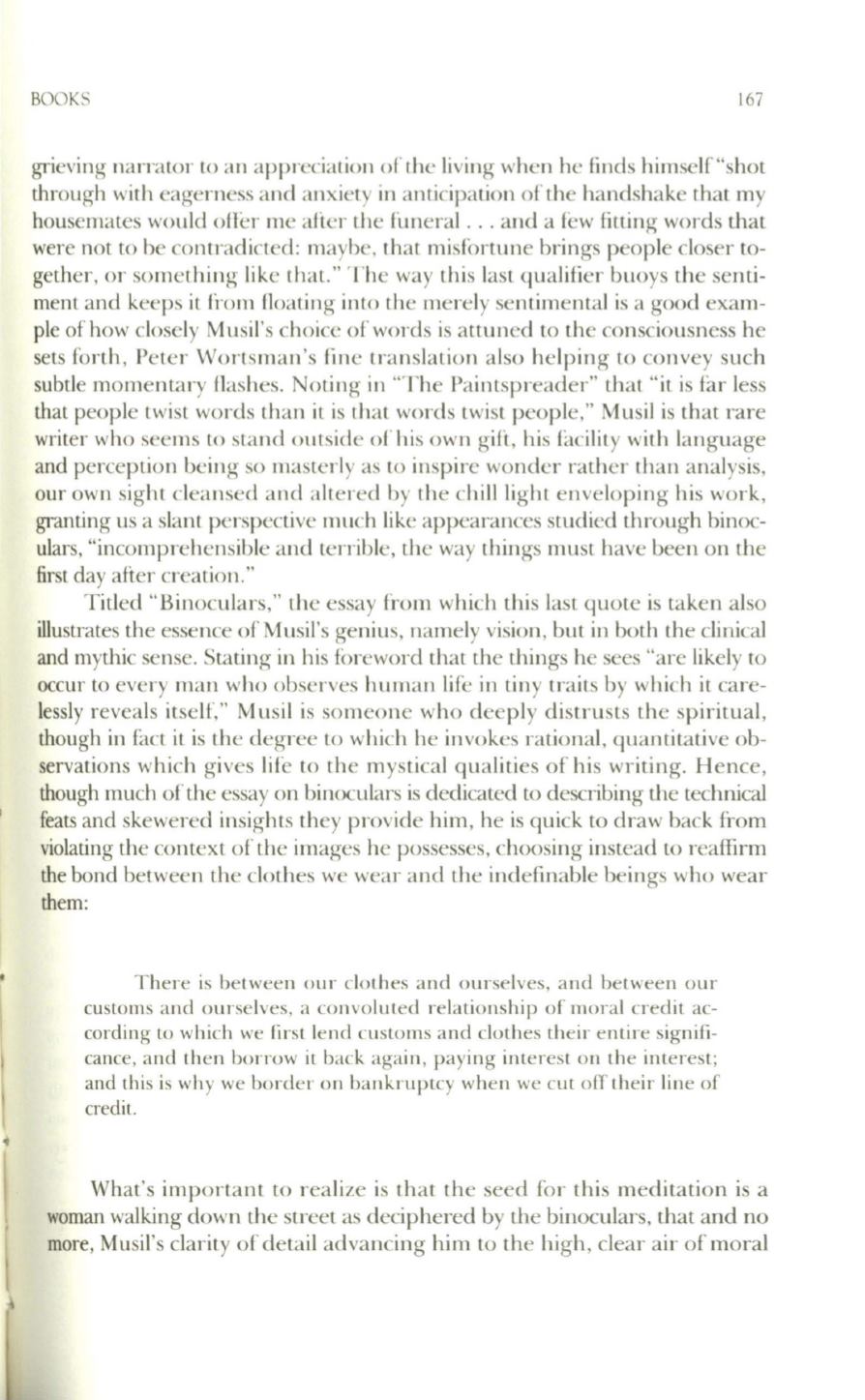
BOOKS
167
grieving narrator to an appreciation of the living when he finds himself"shot
through with eagerness and anxiety in anticipation of the handshake that my
housemates would offer me after the funeral ... and a few fitting words that
were not to be contradicted: maybe, that misfortune brings people closer to–
gether, or something like that." The way this last qualifier buoys the senti–
ment and keeps it !i-om floating into the merely sentimental is a good exam–
ple of how closely Musil's choice of words is attuned to the consciousness he
sets forth, Peter Wortsman's fine translation also helping to convey such
subtle momentary flashes. Noting in "The Paintspreader" that "it is tar less
that people twist words than it is that words twist people," Musil is that rare
writer who seems to stand outside of his own gift, his tacility with language
and perception being so masterly as to inspire wonder rather than analysis,
our own sight cleansed and altered by the chill light enveloping his work,
granting us a slant perspective much like appearances studied through binoc–
ulars, "incomprehensible and terrible, the way things must have been on the
first day after creation."
Titled "Binoculars," the essay from which this last quote is taken also
illustrates the essence of Musil's genius, namely vision, but in both the clinical
and mythic sense. Stating in his foreword that the things he sees "are likely to
occur to every man who observes human life in tiny traits by which it care–
lessly reveals itself," Musil is someone who deeply distrusts the spiritual,
though in fact it is the degree to which he invokes rational , quantitative ob–
servations which gives life to the mystical qualities of his writing. Hence,
though much of the essay on binoculars is dedicated to describing the technical
feats and skewered insights they provide him, he is quick to draw back from
violating the context of the images he possesses, choosing instead to reaffirm
the bond between the clothes we wear and the indefinable beings who wear
them:
There is between our clothes and ourselves, and between our
customs and ourselves, a convoluted relationship of moral credit ac–
cording to which we first lend customs and clothes their entire signifi–
cance, and then borrow it back again, paying interest on the interest;
and this is why we border on bankruptcy when we cut off their line of
credit.
What's important to realize is that the seed for this meditation is a
woman walking down the street as deciphered by the binoculars, that and no
more, Musil's clarity of detail advancing him to the high, clear air of moral


